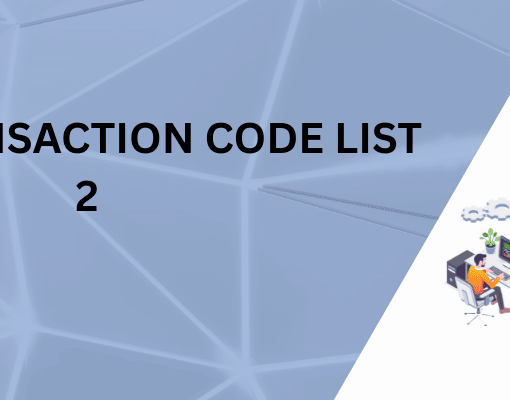Universal Basic Income (UBI) is a social welfare policy proposal that has gained a lot of traction in recent years. It is a policy that guarantees every citizen of a country a minimum level of income, irrespective of their employment status. The concept of UBI has been around for decades, but it has gained renewed interest in recent times as countries grapple with rising inequality, job insecurity, and the challenges posed by automation. While UBI promises to alleviate poverty and provide greater economic security, its implementation also poses significant challenges. In this article, we will explore the benefits and challenges of implementing UBI in more detail.
What is the concept of universal basic income?
Universal Basic Income (UBI) is a social welfare concept that proposes providing every citizen or resident of a country with a regular and unconditional cash payment. The key features of UBI include:
- Universality: UBI is intended to be provided to all individuals within a specified jurisdiction, regardless of their income, employment status, or wealth. It is meant to be a universal benefit available to everyone.
- Unconditional: UBI is typically given without any means testing or work requirements. It is not dependent on whether the recipient is employed or actively seeking work. The unconditional nature of UBI distinguishes it from traditional social welfare programs, which often have eligibility criteria and conditional requirements.
- Regular and Cash Payment: UBI involves providing a regular and predictable cash payment to individuals. The payment can be made monthly, quarterly, or annually, and it is usually given in the form of direct cash transfers.
The primary goals of implementing UBI are:
- Poverty Alleviation: UBI aims to provide a financial safety net and reduce poverty by ensuring that every individual has a minimum level of income to cover their basic needs, such as food, housing, and healthcare.
- Income Security: UBI seeks to address income insecurity and vulnerability in the face of economic fluctuations, job displacement due to automation, and other socioeconomic changes. It provides a stable income floor that individuals can rely on regardless of their employment status.
- Simplification and Efficiency: UBI has the potential to simplify the complex web of existing social welfare programs by consolidating various targeted benefits into a single universal payment. This simplification can reduce administrative costs and bureaucracy associated with managing multiple welfare programs.
- Enhancing Individual Freedom and Choice: UBI aims to empower individuals by providing them with financial security and autonomy. It allows people to have more control over their lives, make choices based on their preferences, and pursue entrepreneurial or creative endeavors.
UBI has gained attention and sparked discussions in many countries as a potential response to socioeconomic challenges such as poverty, inequality, and technological advancements. It has both proponents and critics, with debates centering around its affordability, the potential impact on work incentives, and the overall effectiveness of the policy in achieving its goals.
Benefits of Implementing UBI:
- Poverty Alleviation: UBI has the potential to lift millions of people out of poverty, especially those in low-income brackets. By providing a basic level of income to all citizens, UBI ensures that everyone has enough money to meet their basic needs such as food, shelter, and healthcare. This can also help reduce income inequality by narrowing the gap between the rich and the poor. Studies have shown that UBI has the potential to reduce poverty rates significantly in several countries.
- Greater Economic Security: UBI can provide a safety net for individuals and families during difficult times such as job loss, illness, or disability. This can lead to greater economic security and stability, reducing the risk of financial instability and social exclusion. With a basic income guaranteed, people are better able to cope with unexpected expenses or emergencies, which can reduce the likelihood of being forced into debt or becoming homeless.
- Encourages Entrepreneurship: UBI can encourage entrepreneurship by providing a safety net for individuals to take risks and start their own businesses. By eliminating the fear of failure and the need to secure a basic income, individuals are more likely to take the leap and pursue their entrepreneurial dreams. This can lead to greater innovation, job creation, and economic growth.
- Increased Consumer Spending: UBI can also boost consumer spending and stimulate the economy. With a basic income guaranteed, people have more money to spend on goods and services, thereby increasing demand and creating jobs. This can lead to a virtuous cycle of economic growth, as businesses benefit from increased demand and are able to hire more workers.
Challenges of Implementing UBI:
- Funding: One of the biggest challenges of implementing UBI is funding it. Providing a basic income to every citizen can be a costly endeavor, and finding the necessary funding can be difficult. It is important to consider how the program will be financed and what impact it will have on existing social welfare programs. In many cases, UBI would require significant changes to tax policy, which can be politically challenging.
- Inflation: UBI has the potential to lead to inflation, as more money is injected into the economy. This can be particularly problematic if the program is not well-designed and implemented, leading to a rise in prices and a reduction in the purchasing power of the basic income. Careful planning and implementation are essential to avoid this outcome.
- Workforce Participation: Critics of UBI argue that it may discourage people from working, leading to a decline in workforce participation. If individuals are guaranteed a basic income, they may be less motivated to work and contribute to society. This can have a negative impact on the economy, as productivity and innovation may decline. However, proponents of UBI argue that it can actually increase workforce participation by providing a safety net for people to take risks and pursue new opportunities.
- Implementation: The implementation of UBI can be a complex and time-consuming process. It is important to consider how the program will be administered, who will be eligible, and how the basic income will be distributed. There may also be practical challenges such as setting up a new administrative system and ensuring that payments are made on time. The success of UBI will depend on effective implementation, which requires careful planning, management, and oversight.
- Societal Attitudes: Another challenge to the implementation of UBI is the societal attitudes towards work and welfare. In some cultures, there is a stigma attached to receiving welfare or government support. This can create resistance to UBI, as people may feel ashamed or stigmatized for receiving a basic income. It is important to address these cultural attitudes and ensure that UBI is perceived as a positive and necessary social welfare policy.
Does India have a universal basic income?
In 2017, the Government of India initiated a pilot study called the “Basic Income Pilot” in the state of Madhya Pradesh. The program aimed to provide a basic income to a select group of individuals to assess its potential impact on poverty alleviation and socio-economic indicators. The pilot study was implemented by the Self-Employed Women’s Association (SEWA) in collaboration with various academic institutions and international organizations.
Additionally, some state governments in India have taken steps towards implementing cash transfer schemes or income support programs targeting specific groups. For example, the Telangana government introduced the “Rythu Bandhu” scheme, providing direct income support to farmers, and the Odisha government launched the “KALIA” scheme, which provides support to farmers and landless agricultural households.
It’s important to note that the concept of universal basic income remains a topic of debate and exploration in India, and any decision to implement it nationally would require significant deliberation, policy formulation, and financial considerations. Please note that there may have been developments or changes in Indian policy since my last update in September 2021, so it is advisable to consult more recent sources for the latest information.
For SAP & Oracle Consulting services you can click here.
For SAP Managed Services you can click here.





